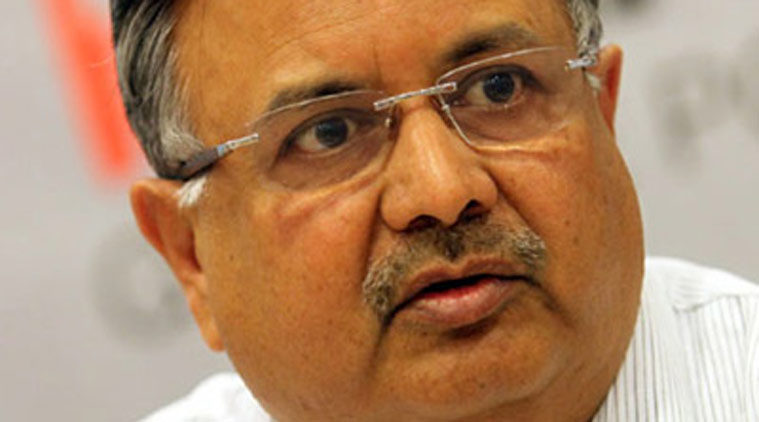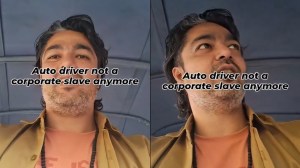Chhattisgarh Tapes: Need to stem the rot in elections
What adds to the gravity is the purported involvement of an incumbent CM ( his family to be precise) and a former CM and his sons. To what depths can the politics fall!
 File photo of Chhattisgarh Chief Minister Raman Singh
File photo of Chhattisgarh Chief Minister Raman Singh
The Indian Express lead story today about the dirty role of money in Chhattisgarh bye-election in 2014 makes a depressing reading. The candidate of the grand old national party, INC, suddenly withdrew his nomination as a party candidate a day before the last day for withdrawal of nominations. Soon thereafter he was of course expelled from the party for the treacherous act, but the story does not seem to have ended there. The event is despicable. What adds to the gravity is the purported involvement of an incumbent CM ( his family to be precise) and a former CM and his sons. To what depths can the politics fall!
The transcripts do not clearly indicate the amounts involved. Is it 7 and 10 lakhs or crores? While in legalistic sense it makes no difference, but the figures are material for gauging the depth to which politics has fallen. It is inconceivable that a potentially winning candidate of a great party would indulge in this serious deception game and withdraw – that too for a measly 7 (or 10) lakhs when crores are being spent in the election for a panchayat member. And if the figure is 10 crores, it shows what a high stake game the election has become.
Exclusive: Listen to Chhattisgarh leaders purportedly fix a bypoll
In terms of economics, perhaps it is cheaper to spend 10 crore rupees to make a rival contender fraudulently withdraw than to spend 20 or 30 cr on contesting the real election that seems to have become a norm. One hopes that it does not become an election economics model!
Money power in elections is the only unsolved problem in Indian elections which, ironically, Senator Hillary Clinton recently described as global “gold standard”. In my book An Undocumented Wonder – the Making of the Great Indian Election published last year I had listed 40 modus operandi of cheating in elections that Election Commission had come across. The list may have looked shockingly long and exhaustive then, but the subsequent events have shown that it was only illustrative – a sample, if you will.
Read | Congress sends showcause notice to Amit Jogi, demands Raman Singhs resignation
I have often said that money in election has become the root cause of all corruption in the country. When a candidate spends crores of rupees in the election he will collect a lot more to reimburse him. This he collects from dubious and illegal means – government contracts, licenses, quotas, extortion, etc. Bribes is the most innocent form in this list!
We have often seen candidates who make it a business to file nomination and withdraw for money from anyone who fears division of votes. One senior leader of a political party once told me how several candidates who get money from the party ( he mentioned 2.5 crore each then) pocket most of it when they sense they have no chance of winning. After all, a bird in hand is worth two in the bush!
The present case, besides showing the dirty role of money, also highlights the evil of infighting within a party. There are examples galore when a leader undercuts his own party and makes its candidates lose to sabotage an emerging rival within the party. This case smacks of that possibility too.
Now the question is what can Election Commission do in this case? Perhaps little. After announcement of the result EC becomes functus officio (Having fulfilled the function, discharged the office, or accomplished the purpose, and therefore of no further force or authority). Post result, its role is confined to receiving and examining the expenditure statements of candidates within 30-45 days. The power shifts to the High Court which entertains election petitions on the prescribed grounds, including corrupt practices.
Can the High court, therefore, do something. Answer again seems to be negative as the election petition has to be filed within 45 days. If indeed an EP was filed then and is pending in the HC, one has to see if corrupt practice was a charge. No new ground can be added after the time limit. However, if a writ petition is filed, HC can perhaps use its extraordinary jurisdiction and maybe order a CBI inquiry. Even Income Tax authorities can step in to investigate.
It is pertinent to mention here that that the judiciary has been a guardian angel of integrity of our electoral process. SC order about filing of an affidavit by every candidate about his financial dealings and pending criminal cases has been a landmark in electoral transparency. Even if it has not rooted out corruption, at least it has become a matter of public debate.
In 2012, when buying votes for winning Rajya Sabha elections had assumed scandalous proportions in Jharkhand, Election Commission had countermanded the election for two seats after seizing over 2 crore cash in a car belonging to a candidate. Before taking this unprecedented action we debated what will be the response of the court if the matter went to the court.
We were a little wary that the court may accuse us of arbitrariness in linking the seized money to the election without a ‘conclusive’ proof. This did not deter us from the call of our conscience. The matter did go to Jharkhand HC which not only upheld our order but hailed it as “the only step of great consequence taken by the election commission after independence of the country”. It even slapped a fine of Rs one lakh on the petitioner candidate!



- 01
- 02
- 03
- 04
- 05




























